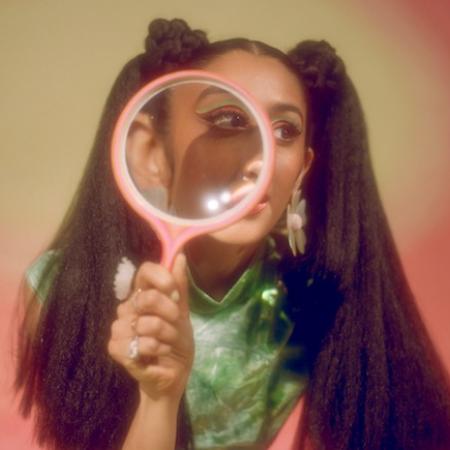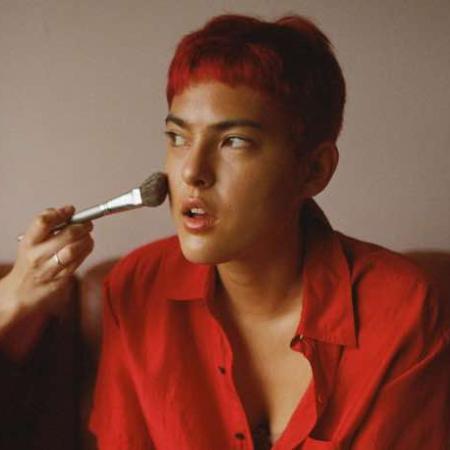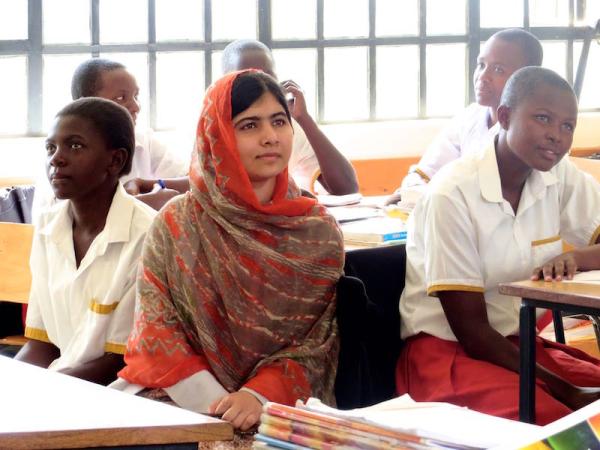William Jackson Harper is in the midst of filming the final season of ‘The Good Place’ - a show that has just recently been announced to be ending after four seasons, with the show’s creator Michael Schur explaining in a statement that “making this show is a rare, creatively fulfilling joy, and at the end of the day, we don’t want to tread water just because the water is so warm and pleasant.”
During the three years of the show, Harper’s character Chidi has become beloved for his incessant indecisiveness, quoting ethics philosophers left, right, and centre.
Outside of ’The Good Place’, Harper is also set to star in Ari Aster’s next film ‘Midsommar’, which has been receiving rave reviews ahead of its release in the US next week.
We caught up with Harper to talk about how ‘The Good Place’ will end, similarities he shares with Chidi, and more…
Unforced diversity is something that I hope is here to stay just because I feel like that’s a more realistic rendering of a lot of people’s lives, than what we typically see on a lot of American shows - that there’s one person representing a certain group, and that one thing about them is the most salient thing about the character, it’s the be-all and end-all of who they are, and that is just not what our show is about.
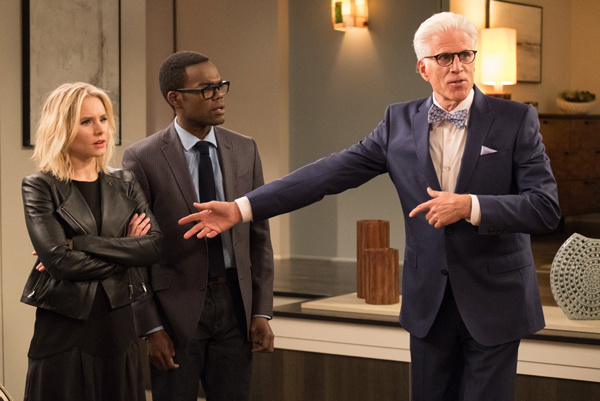
COUP DE MAIN: Is it somewhat bittersweet filming what will now be the final season of ‘The Good Place’ at the moment?
WILLIAM JACKSON HARPER: Of course! We all have a really great time at work, all the time. It’s a really kind group of people, and we feel like we’re doing fun work and also the schedule is super humane - as far as TV shows go - so we’re all aware that we’re spoiled rotten <laughs> in working on this show and having it actually be well received too. We’re like, ‘Oh no, no, no,’ it’s like leaving the nest for a lot of us.
CDM: Do you know how Season 4 of the show ends yet or are you taking it a week at a time when it comes to filming?
WILLIAM: I actually know exactly how it’s going to end, and obviously I’ll keep that to myself, but I’m really excited to see people’s reaction to it. The cast has all reacted very, very differently to the finale of the show, so I just can’t wait to see what happens when it gets out there.
CDM: Have you been reading fan theories about the show? Some of them are wild - I know Mike Schur has said he had to stop reading them in case he decided one of the theories was better than the actual story.
WILLIAM: Yeah, he definitely has! I feel like somebody in the first season guessed it was the bad place - before there had been any inklings, this guy put it out there that it was actually the bad place. We were waiting patiently to see how people reacted to that change, so it was one of those things where we all were like, ‘Well, fan theories are great, but sometimes they are right!’ <laughs> So if we engage with them too much, we gotta start wondering if someone leaked something or if we said something to somebody.
CDM: It’s kind of rare to have a show that is ending not after being cancelled, but at the decision of the show itself - so many comedy shows get endless seasons. Do you feel proud to be part of a show that knows when to end, on a high note?
WILLIAM: Yeah. I think it’s really good to go ahead and let shows be a piece of art rather than just an advertising delivery device. I think that our show gets to be that. I think a lot of networks are starting to get wise to that, that people are able to follow really long arcs, and that TV isn’t something that’s just in the background anymore - it’s something that people really engage in and pay attention to. I think that our show is one of those shows for NBC, and I’m happy that they’re letting it exist as the piece of art that it’s meant to be, as opposed to letting us run and run and run until we’re in zombie-mode and the show is just on, and everyone feels that it should’ve ended five years ago.
CDM: The end of Season 3 was so heartbreaking to see play out - with Chidi choosing to erase his memories of him and Eleanor entirely. Was that a sad moment for you, filming that final scene of the season where you had to reboot your own memories, in a sense?
WILLIAM: Yeah! I mean, it’s not really hard to have a crush on Kristen Bell [Eleanor], so it’s tragic. But I think more than anything, we spent at that point three years building these characters together and building this bond. We’re very close. So to completely shift that dynamic going into Season 4, it’s tough - and in a way it plays out in real life a bit, as much as it does on-screen, because as soon as we get done shooting the show, ironically everybody else lives in LA and I go back to New York where I live. So there’s something about it that sort of mirrors life, and it’s like I disappeared from the West Coast for several months until we come back. So there’s something about the finality of that episode echoing what our actual lives are like a little bit.
CDM: You’ve spoken in interviews about how you are similar to Chidi with your indecision. Have you found that since playing Chidi, you’ve become aware of it / dealt with it in a way?
WILLIAM: I feel like I’ve definitely moved into this place of just being very conscious of when I’m being a jerk, of when I’m being a real prick, and completely up my own rear end about what I want to have happen. So playing Chidi has sort of made me like, ‘You know what? Just make a choice. We live in a world with a million different decisions, just go for it. You’ve got something to lose on either side, so just go for it.' So in a way, it’s made me a lot more decisive, doing this character, and a little less neurotic on some fronts. But again, Chidi is a very extroverted loud person - he makes that paralysis a lot of people’s problem. I, on the other hand, go into a shell and go away when I’m feeling particularly knotted up and anxious, so no-one knows that I’m going through anything at all.
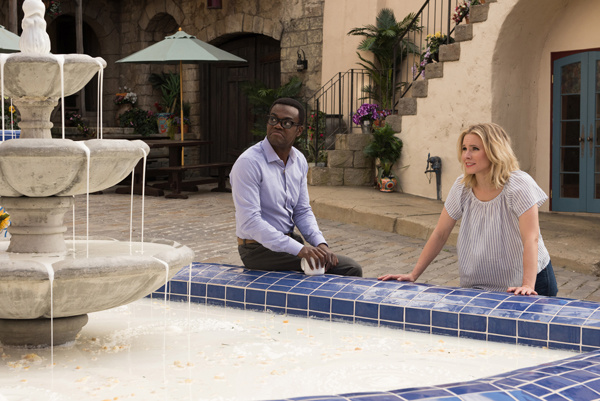
CDM: In Season 3 Chidi says, "I am absolutely paralyzed by decision-making and it is destroying my life," which is incredibly relatable. Do you have any decision-making advice?
WILLIAM: Just don’t overthink it. There are big decisions that you’re going to be making, and I think that sometimes your gut is going to lead you in the direction that you really want to be going with. It’s one of those things where if your gut is telling you to do something, even if there is a lot of downside to it, you’re more willing to deal with it - at least this is how I am. I’m more willing to deal with the downside if my gut is telling me to do something, whereas if I just sort of make the decision that I’m supposed to be making, if there is a bunch of downsides to it, it’s downsides that I’m not really wanting to engage in, so it makes it feel like a much heavier loss. That’s sort of where I’m trying to approach things now, with myself.
CDM: One of my favourite things about 'The Good Place' is how great the show is at representing diversity, and how interracial relationships are normalised. Do you think normalisation is the best approach for encouraging societal destigmatisation?
WILL: Yeah. My world looks a lot like ‘The Good Place’ - I have a lot of friends of varying ethnicities, races, genders, orientations, and those things are not the most salient things about them to me, and I think that a lot of people feel that way. It’s just that’s what the world looks like for a lot of us. Unforced diversity is something that I hope is here to stay just because I feel like that’s a more realistic rendering of a lot of people’s lives, than what we typically see on a lot of American shows - that there’s one person representing a certain group, and that one thing about them is the most salient thing about the character, it’s the be-all and end-all of who they are, and that is just not what our show is about. I really do hope that we are headed in that direction of just seeing unforced diversity on TV.
CDM: If you were in control of The Good Place and The Bad Place, what tasks would you make earn the most points / lose the most points?
WILL: Oh god! I’m going to a really dark place, but I think, to give your life for another person? <laughs> If you save someone’s life and lose your own in the process, that is automatic entry to The Good Place. So I think there’s that, and ultimate Bad Place, the thing that would probably get you the most negative points would be something like a genocide - that’s kind of a no-brainer. It’s either self-sacrifice or genocide.
CDM: If you could play any other character on 'The Good Place', who would you want to play and why?
WILL: I would actually like to play Jason Mendoza, just because Manny [Jacinto] particularly has my number when it comes to cracking me on-set. He’s usually the one that makes me laugh the easiest, just because his choices are so strange and so funny, and he’s also got some of the most fun lines, and the weirdest costumes. I would love to do that.
CDM: What’s been your favourite moment of Chidi’s that you’ve worked on in the past three seasons of the show?
WILL: Probably getting to shoot ‘The Trolley Problem’ episode. It was tough, there was a lot of getting shot in the face with a blood cannon, and swallowing foam while I’m doing it, but I think it was one of those jokes that made a lot of my college friends laugh the hardest. For me that was all the pay-off I needed - to have my old college comedy nerd snob friends just lose their shit over that joke.
CDM: How did you find going from filming ‘The Good Place’ to something completely different with ‘Midsommar’? The genres are so different as well as it being TV compared to film.
WILL: They’re wildly different worlds; they’re wildly different environments - honestly the biggest difference was being outside of the United States while shooting. We shot in Hungary for the most part, and I was the only American in the cast, so that was odd, and it was really intense. That took some getting used to. But also the world itself is just incredibly dark, and also bright, and I think more than anything, I just really wanted to depart as much as I could from playing Chidi. I share a lot of characteristics with Chidi, but that’s not who I am in my everyday life, so I really wanted to explore some other parts of myself. So that was fun getting to do that a little bit, and not trying to sell any jokes, not trying to make sure that I’m endearing to anybody. It was nice to have that responsibility be lifted from me, and just exist and react in the world that we created, which was incredibly unique and strange. So that was the biggest thing, being the only American, and moving away from this character that I have spent so much time with.
CDM: Did you learn any more Hungarian than the words for “fruit”, “no”, “scone” and “everybody back to one please!”?
WILL: No, that’s all I got! That’s exactly what I have. Where did you hear that?!
CDM: I think you tweeted about it a while ago.
WILL: Okay. <laughs> Although whenever I said, “Everybody back to one please,” two other Hungarians looked at me quizzically, they were like, "That makes no sense, what are you saying?" I was like, "I hear it every day!" So I would say it slowly and they were like, "Oh, I know what you mean."
CDM: Were you a fan of Ari Aster’s films prior to signing up for ‘Midsommar’?
WILL: Absolutely. The only thing that I’d seen was ‘Hereditary’, which was automatically one of my top five horror movies ever, and probably one of my top movies ever because I enjoy horror so much. It’s sort of an elevation of the genre a little bit - for me, I just feel like there’s a sense of inevitability that is played in a very real way. It’s a movie about grief, and it’s about mental health, but it’s also about this other-worldly thing where the rules of how to resist it are not clearly written out. People are not accustomed, or ready, and there’s something about seeing a supernatural horror thing happen in a world of people that are reacting to it as they would in real life - it’s real fear, you’re actually very much curious about whether you’re seeing what you’re seeing. There’s something about that which is really unsettling and I think also really satisfying. In each one of those characters, I saw my reaction, like, ‘This is what I would do.’ I love that. At no point was I like, ‘I wouldn’t do that.’ At every point, I was like, ‘I don’t know what I would do. I really don’t know how I would react.’ So that’s the thing, a really interesting knot that he ties the movie into, and I think it’s really fun to try and untie it, and see how it comes back to normal.
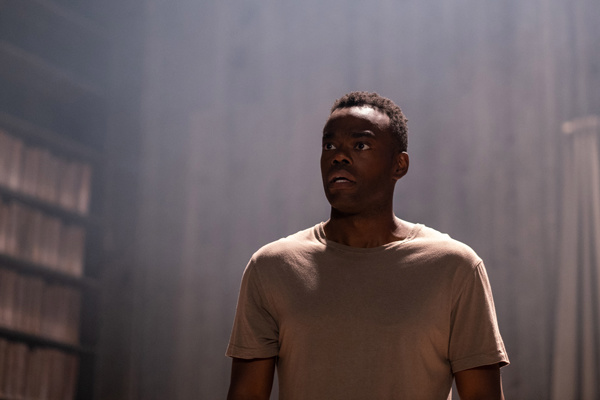
CDM: You wrote a play ‘Travisville’ which ran at Ensemble Studio Theatre last year. Do you enjoy the writing side of the creative world as well as acting?
WILL: I love writing, but I don’t know that I ever want to do that again. <laughs> It was great, I honestly had a bee in my bonnet about this particular story and this kind of story, so I wanted to destroy the idea of this monolithic point of view that black people supposedly had in the mid to early ‘60s. I really wanted to break that up. So I was really driven when I was writing that, but that was a very particular circumstance. I’ve tried to write things since then, and it’s mostly trash, so I don’t want to show it to anybody. It was really fulfilling to see it out there, but I really have no desire at the moment to jump right back up on that horse again and try to write something else. I need to be particularly driven to do it.
CDM: I saw that last year you went to see 'The Jungle' in Brooklyn - I actually saw it when I was in London last year. Do you think it’s important that stories like this are told through mediums like theatre?
WILL: Yeah, it’s such a great show. I was so affected by it. It was also just so immediate. It’s one of those things, that I think a lot of Americans don't know about it - we didn’t know that this was happening. It feels so incredibly raw that things went down the way that they did. It usually takes a long time for theatre to be made - in the time that you hear about the thing that’s happening that we’re all up in arms about, to the time that it makes it to the stage, it’s been thoroughly workshopped and vetted, it’s a long time. The emotion around it is not as present, but especially for American audiences, and especially for me, it was something I didn’t really know about, so to know that it was happening right now and that this piece of theatre was created to raise awareness about the whole thing, it was amazing. It was the most immediate thing that I think I’ve ever seen in the theatre, it blew my mind.
‘The Good Place’ Season 3 is available now on Netflix - watch the trailer below…



